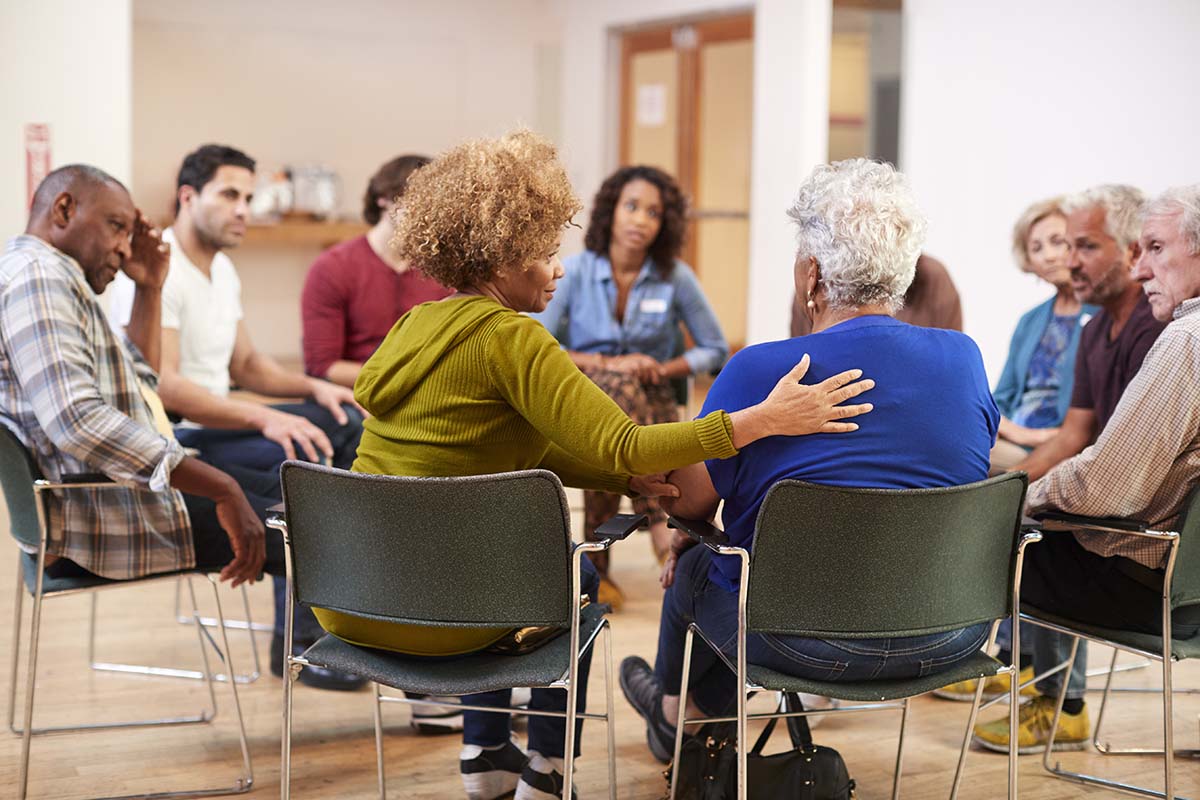The struggle to recover from substance abuse can be a long one. Treatment and rehab centers only set the stage for a lifelong challenge. Once you get beyond the immediate services of inpatient or outpatient treatment, support groups add an important layer to your recovery.
Post-treatment support groups are a principal element of rehab aftercare. They provide a safe, non-judgmental environment for sharing not only problems or issues but accomplishments too. Perhaps more importantly, they are places where you can build long-term supportive relationships. Experience shows that support groups, and the help they provide, are critical for recovery.
Why Is Aftercare Necessary?
Treatment can be intense and requires strength and commitment. You might wonder why the process of rehab alone isn’t enough to secure sobriety. It’s because of the risk of relapse. Many will suffer a relapse in the first year after rehab.
Returning to the world requires important lifestyle changes. Eating well, getting enough sleep, and exercising are pillars of recovery. But even if you do all those things, you still will encounter situations in life that tempt you with your old ways.
How you deal with those situations will make all the difference in your recovery. For instance, you may need to separate yourself from individuals who provide a poor influence and disrespect your efforts at recovery.
Attending support groups faithfully as part of rehab aftercare can help you defend against relapse. Contact Blueprint Recovery Center to learn more.
Different Types of Support Groups
Rehab aftercare support groups are available in a variety of formats. You will hear a lot about 12-step recovery programs such as Alcoholics Anonymous. But there are many options. Formats for support groups include:
- 12-step programs such as Alcoholics Anonymous, the first and best-known 12-step program, can guide your recovery. Programs also exist for narcotics, gambling, and other addictions.
- SMART Recovery programs are available in many communities. These groups seek to empower individuals to make positive changes in their lives.
- Community networks, perhaps through mental health organizations or county health departments, also organize support groups for rehab aftercare. Some may be grounded in the 12 steps but may also take other approaches.
- In the digital age, some support groups have migrated to the Internet, meeting by video conference. You may find groups organized on the Internet, and some may also be peer-organized.
- Churches and other religious institutions also offer support groups.
Choose the environment that’s right for you.
How Support Groups Help with Addiction
You might wonder what you can expect from support groups in the rehab aftercare stage. What you make of these services, and how much you participate, is really up to you. But the evidence shows powerful impacts from allowing/enabling people with shared circumstances to care for each other.
Support groups primarily work by teaching people with substance use disorders that they aren’t alone. Overcoming the isolating sense of drug and alcohol abuse is crucial to recovery. The support of peers is also useful in developing a forum for collective ideas, to discuss problems and how to overcome them in a mutually supportive, non-judgmental way.
These relationships play an important role outside of meetings as well. Your mentor/sponsor can be there for you when you need them most.
Write the Next Chapter with Blueprint Recovery Center
Recovery does not end the moment you walk out of the treatment center door. It’s just beginning. Substance-use disorders stay with you forever. They require ongoing vigilance to prevent relapse. Peer support groups provide a powerful defense. First, though, comes treatment. Blueprint Recovery Center offers the latest in evidence-based addiction care to help you through detox and counseling for substance use disorders. Services include partial hospitalization programs, intensive outpatient programs, outpatient, and sober living programs. We’ll also get you pointed in the right direction with rehab aftercare. Take the first step to a happier future. Contact Blueprint Recovery Center for a consultation today by calling 833.654.1004.







